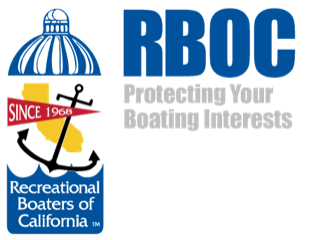RBOC isopposing AB 2092 [Frazier] as introduced unless the bill is amended so that recreational boaters’ funds will not be used to rid the waterways of abandoned commercial vessels.
This bill proposes to open up the use of boater-generated fuel tax dollars and registration fees for the cleanup of abandoned commercial vessels. At issue is the integrity of the RBOC-supported Abandoned Watercraft Abatement Fund [AWAF] and Vessel Turn-in Program [VTIP].
This program provides funds to public agencies to remove, store, and dispose of abandoned, wrecked, or dismantled vessels or any other partially submerged objects which pose a substantial hazard to navigation, from navigable waterways or adjacent public property, or private property with the landowner's consent.
As part of its commitment to provide clean, safe and enjoyable recreational boating on California's waterways, the Division of Boating and Waterways [DBW] administers this statewide program. It allows public local agencies to apply for funding and upon approval, enter into a contract grant agreement with DBW.
The AWAF and VTIP, enacted in 1998 and 2010 respectively, have provided millions of dollars in grants, and have enabled the removal of thousands of vessels and other marine debris.
The Governor has proposed a budget of $1.75 million for the program in next year’s budget, and we understand that the monetary requests of grant applicants greatly exceed the available funds.
RBOC is concerned that AB 2092 would open up AWAF and VTIP to commercial vessels. In particular:
- Commercial vessels are much more expensive to clean-up and the cost of one vessel could exceed the entire fund.
- The owners of commercial vessels do not contribute to the fund – only recreational vessel owners do.
- The demand for clean-up of recreational vessels already exceeds the amount of available funds. These vessels should remain the top priority at this time.
- There have been no comprehensive studies of:
- The extent to which abandoned commercial vessels represent danger on the waterways;
- Whether the owners of abandoned commercial vessels can be identified and assessed cleanup costs; and
- Whether there are other alternatives to tapping into the recreational boater-funded program, such as state recycle and superfund dollars.
